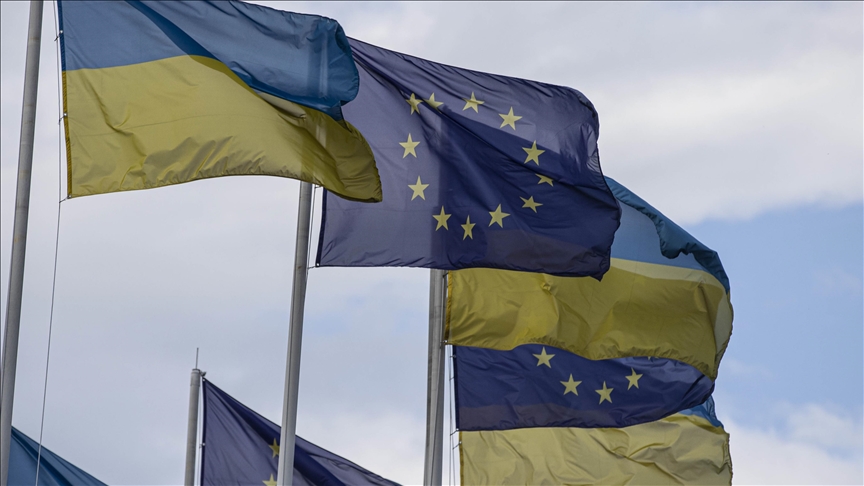Ukraine to join EU’s free-roaming zone
EU, Ukraine sign agreements on digital, tax, customs cooperation

BRUSSELS
Ukraine is expected to join the EU’s free-roaming network after the partners signed a deal on digital cooperation on Monday that paves the way for integration in telecommunications.
Ukraine and the EU held the 8th meeting of the EU-Ukraine Association Council in Brussels with the participation of Ukrainian Prime Minister Denys Shmyhal, EU foreign policy chief Josep Borrell, and EU Commissioner for Enlargement Oliver Varhelyi.
“We signed the Digital Europe Program with a total budget of €7.5 billion ($7.45 billion) that include some very important digital technologies and also joining the roaming space in the EU,” Shmyhal announced at a joint news conference following.
“We are exploring now sound options for associating Ukraine fully in our roaming area to enjoy the same lowered tariffs between Ukraine and the EU,” Varhelyi explained.
He also added that if Ukraine’s telecommunications market integrates into the EU's, it will be of benefit “not only for the markets but for the people to be able to maintain contact.”
Once adopted, people traveling from Ukraine to the EU and EU travelers in Ukraine will be able to make phone calls, send text messages, or use mobile data without extra charges just like among EU member countries.
Shmyhal also thanked the bloc for allocating the first tranche of €1 billion ($99.1 million) of the bloc’s €9 billion ($8.9 billion) macro-financial assistance package which was a “great help with these very difficult times” and said his country was looking forward to the second and third parts.
During the meeting, the EU executive body and Ukraine agreed on the disbursement of a €500 million ($497 million) budget support program, pledged by Ursula von der Leyen, the president of the European Commission, in April at a campaign -- Stand up for Ukraine.
The aid will contribute to “housing, restarting education, helping the internally displaced and to consolidate the agriculture sector,” Varhelyi said.
The EU and Ukraine also signed agreements on cooperation in the fields of customs and taxation.
For his part, Borrell welcomed the fact that the EU granted candidate status to Ukraine in June and pointed out that Russian President Vladimir Putin’s intention to “colonize, destroy Ukraine” ended up “instead in pushing it closer to Europe.”
He reassured Ukraine of the bloc’s help “whatever threat, whatever blackmail Russia puts on us.”
“We will provide support politically, financially, monetarily, and militarily as long as it takes and as much as needed,” Borrell asserted.
Since the beginning of the Russia-Ukraine war on Feb. 24, the bloc has provided a total of €2.5 billion ($2.5 billion) in military aid, including lethal weapons, as well as personal protective gear, first aid kits, and fuel.
It has also imposed seven sanctions packages, targeting, among others, President Putin and Foreign Minister Sergey Lavrov, banning gold, oil, and coal imports, and the export of luxury goods and high-tech technology, as well as excluding Russian and Belarusian banks from the SWIFT international payment system.
Anadolu Agency website contains only a portion of the news stories offered to subscribers in the AA News Broadcasting System (HAS), and in summarized form. Please contact us for subscription options.







